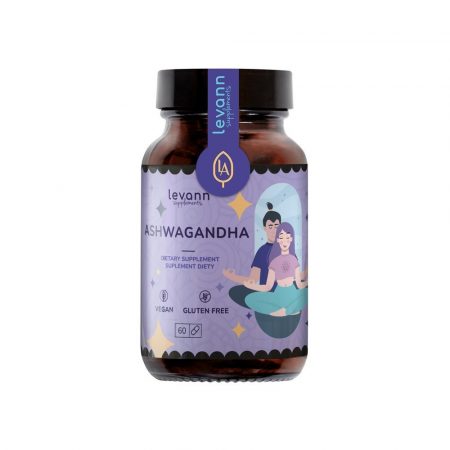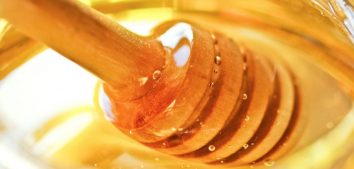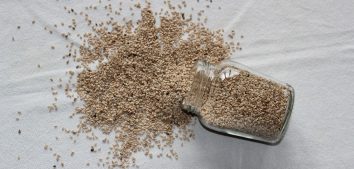
Ashwagandha — Your Ally in the Fight Against Stress
Nowadays, a fast lifestyle, fatigue, and stress are common problems that accompany most of us. Long-term stress can lead to unfavorable changes in our body, as well as many diseases and conditions, including migraines, insomnia, and obesity. It is useful to know effective methods of dealing with it to make our everyday life a bit easier. In addition to the well-known methods (which I wrote about HERE), such as changing the lifestyle, physical exertion or relaxation exercises, additional support in the form of adaptogen supplementation may be helpful. 🙂
I’ve already written about adaptogens (e.g. HERE). These are substances that increase the immunity of the human body to stress, both emotional and physical, as well as fatigue and depression. Adaptogens can normalize the body’s functions by regulating its normal physiological mechanisms and increasing adaptive abilities in response to unfavorable environmental conditions. Various active ingredients found in adaptogens stimulate the immune system and, through many metabolic pathways, have a positive effect on our health and well-being. Today I would like to tell you about one of them in more detail.
What is ashwagandha?
Ashwagandha (Withania somnifera), also known as Indian ginseng or winter cherry, is a small shrub with slightly elongated leaves and orange-red, round fruit. This plant has played a significant role in Ayurvedic medicine for thousands of years. Its natural habitat is South-East Asia, but it can also be found in Australia, South Africa, and the Canary Islands. The mysterious-sounding name of this plant comes from the words “ashwa” (horse) and “gandha” (smell), which literally translate to the smell of a horse. It is related to the characteristic smell released by its roots. The chemical composition of ashwagandha includes many active compounds, i.e. withanolides, alkaloids, flavonoids and sitoinosides, which exhibit various effects in the functioning of the human body.
What are the health benefits of ashwagandha supplementation?
Ashwagandha is known primarily for its anti-stress, anti-anxiety and calming properties. Studies have shown that it lowers the level of cortisol, i.e. the stress hormone, 5 times, and reduces the level of tribulin in the brain which is a protein considered a clinical indicator of anxiety. People exposed to chronic stress also showed fewer problems with insomnia after using ashwagandha. It is often used in times of mental and nervous tension and in maintaining emotional balance.
This plant may also support the treatment of Alzheimer’s and Parkinson’s diseases. It owes this to its antioxidant properties, protecting the cells of the nervous system against the harmful effects of free radicals and toxins, which in turn can cause dementia or respiratory disorders. It also improves memory and brain function. For this reason, it is especially appreciated in people exposed to increased mental effort. In addition, the vitaferin it contains has anti-cancer properties, supporting the destruction of cancer cells and preventing the growth of new ones. Research suggests it may help treat several types of cancer, including breast, lung, brain, and ovary cancers
Ashwagandha is an adaptogen often used among athletes as it increases the body’s tolerance to exercise and supports muscle regeneration after training. It also helps in gaining muscle mass and increasing muscle strength. It can also be used by people with carbohydrate disorders due to the fact that it lowers blood sugar levels and improves insulin sensitivity. Additionally, it has been shown to increase the activity of NK cells (Natural Killers) that fight infection and help you stay healthy. It also helps to relieve pain, e.g. in arthritis. It can be used in the treatment of male infertility, playing an important role in the production of sperm, while in women it supports the proper functioning of reproductive organs.

Summary
As you can see, ashwagandha has countless health-promoting properties and is useful in combating mental and physical fatigue, stress, sleep disorders, and anxiety. Showing a broad spectrum of activity, it can be used as a helpful supplement for many people.
If you struggle with the above problems on a daily basis, I recommend trying ashwagandha yourself. Ashwagandha Levann Extract is standardized to 5% withanolides, so you use its full power in the recommended, safe dose (available HERE). You can also find ashwagandha extract in Levann Energy, our supplement for special tasks which also provides such valuable nutrients as caffeine and liquorice extract (HERE).
However, if you need additional support in the form of other adaptogens, e.g. ginseng, try Levann Vitamin and Mineral Set, which has been created to meet the specific needs of women and men (HERE i HERE). Adaptogens are contraindicated during pregnancy and lactation.
Bibliography:
- Chandrasekhar K, Kapoor J, Anishetty S. A prospective, randomized double-blind, placebo-controlled study of safety and efficacy of a high-concentration full-spectrum extract of ashwagandha root in reducing stress and anxiety in adults. Indian J Psychol Med. 2012; 34(3): 255-262.
- Choudhary D, Bhattacharyya S, Bose S. Efficacy and Safety of Ashwagandha (Withania somnifera (L.) Dunal) Root Extract in Improving Memory and Cognitive Functions. J Diet Suppl. 2017; 14(6): 599-612.
- Dar NJ, Hamid A, Ahmad M. Pharmacologic overview of Withania somnifera, the Indian Ginseng. Cell Mol Life Sci. 2015; 72(23): 4445-4460.
- Dutta R, Khalil R, Green R, Mohapatra SS, Mohapatra S. Withania Somnifera (Ashwagandha) and Withaferin A: Potential in Integrative Oncology. Int J Mol Sci. 2019; 20(21): 5310.
- Wankhede S, Langade D, Joshi K, Sinha SR, Bhattacharyya S. Examining the effect of Withania somnifera supplementation on muscle strength and recovery: a randomized controlled trial. J Int Soc Sports Nutr. 2015; 12(1): 43-54.









Comments No Comments
Join the discussion…